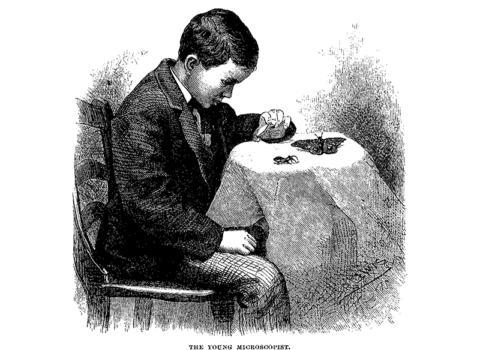John R. MacArthur is publisher of Harper’s Magazine and author of the book You Can’t Be President: The Outrageous Barriers to Democracy in America. This column originally appeared in the June 15, 2011 Providence Journal.
Isn’t French-bashing fun? With Dominique Strauss-Kahn (aka Le Perv) residing in tabloid hell on charges of attempted rape, we’ve gone back to anti-Frog ridicule not seen since Bush and company were denouncing the other Dominique — de Villepin — for opposing the invasion of Iraq. “The Simpsons” image of a “cheese-eating surrender monkey,” popularized by Anne Coulter among others in 2003, has been replaced by the image of a woman-devouring “chimpanzee in rut.”
The difference between 2003 and today is that now even left-wingers are getting in on the act. Writing last week in The Nation magazine, Katha Pollitt declared herself “through” with her love affair with France: “Oh, it was lovely while it lasted, my crush on your big welfare state, with its excellent national health service and its government-funded childcare.”
But thanks to DSK and his louche defenders among the French elite, Pollitt has discovered that many Frenchmen are “self-satisfied creeps” and that some Frenchwomen “enable” their arrogant men with “docility and feminine-mystique-ization.”
I don’t disagree with Pollitt’s views about some French intellectuals she quotes, or even with her critique of what the French consider appropriate sexual pursuit. As in all cultures, there’s much to be mocked about France’s pretensions and national self-image. Yet I can’t join in the general merriment over seeing the big-cheese DSK forced to eat his country’s motto of Liberté, Egalité, Fraternité in full frontal humiliation before America’s carnival-like “justice” system.
Partly I’m disgusted by American hypocrisy: I can’t bear hearing U.S. pundits and lawyers congratulating themselves on our supposedly egalitarian approach to criminal prosecution. Asked to comment on the Strauss-Kahn case by French radio and TV, I’ve been obliged to describe the depressing realities of elected district attorneys and their political ambitions, selective prosecution, leaking to the press to foul the pool of potential jurors, and the ingrained biases, varying by state and locality, against ethnic minorities and the poor.
The single prosecution of a DSK — just like Tom Wolfe’s WASP bond trader in The Bonfire of the Vanities — does not redress the inequities of the American legal system. It is a double irony, then, that the rich Strauss-Kahn couple (unlike a poor black rape defendant with a court-appointed lawyer) can afford to hire the best legal talent and investigators to destroy the reputation of his accuser, a lower-class African woman.
My work as a police reporter in Chicago and covering the Cook County state’s attorney extinguished my illusions about U.S. justice being “blind” at the same time that it gave new meaning to Claude Rains’s line in Casablanca, “Round up the usual suspects.” Chicago cops, especially in Area 2 homicide, are forever rounding up the usual suspects.
But what distresses me more than American self-righteousness is the ease with which some journalists judge a whole culture about which they know very little. I happen to be half-French, through my mother, and I’m offended by the stereotypes and generalizations applied to people who have nothing in common with the former managing director of the International Monetary Fund. If you read the tabloids as well as Katha Pollitt, you might get the idea that France is a nation dominated by skirt-chasing libertines who think that the droit du seigneur is part of the Declaration of the Rights of Man.
In my experience, French society is vastly more conservative — much more centered on family life and respectful of women — than is American society. True, the miserable, deracinated, sex-obsessed characters found in Michel Houellebecq’s novels represent a growing phenomenon in France. However, loyalty to family and care for children remain paramount, which is why French governments — whether “left” or “right” — spend a lot of money on social services to make possible the maintenance of a family, even on a modest income.
If America really respected women, we would follow the French model. Reducing economic stress tends to reduce stress on marriages and helps keep families together. I’ve been the direct beneficiary of France’s family/women-friendly policies — from the private hospital room that permitted me or my wife, at no extra cost, to stay overnight with our sick daughter to the Napoleonic Code that prevented my French grandfather from disinheriting my mother and my aunt.
I don’t think that it’s a coincidence that the French divorce rate is lower than America’s (43 percent compared with 49 percent, says Divorce magazine) and that reported rapes, say the United Nations’s latest statistics, were 16.6 per 100,000 in France, compared with 28.6 per 100,000 in the U.S.
Social life in France still revolves around the family, and while I can’t cite statistics to prove it, I know that French children tend to stay closer to their parents. Indeed, meals and weekends “en famille” can become oppressive for someone used to Anglo-Saxon informality, fluidity, and anomie.
As it happens, I’ve shared a conference platform with Dominique Strauss-Kahn and once interviewed him. I didn’t like him much: He was obviously bright but too obviously cynical to be an attractive politician. Moreover, I found it preposterous for a former IMF chief to be running for president as a member of the Socialist Party. Essentially a free-market economist, DSK representing the French left would have insulted authentic leftists everywhere.
But something about the virulence of the attacks on Strauss-Kahn — the blatant anti-Frenchness of it all — makes me wish for a different resolution than the one splashed all over the Daily News and the New York Post. After all, he’s innocent until proven guilty.
Isn’t he?



